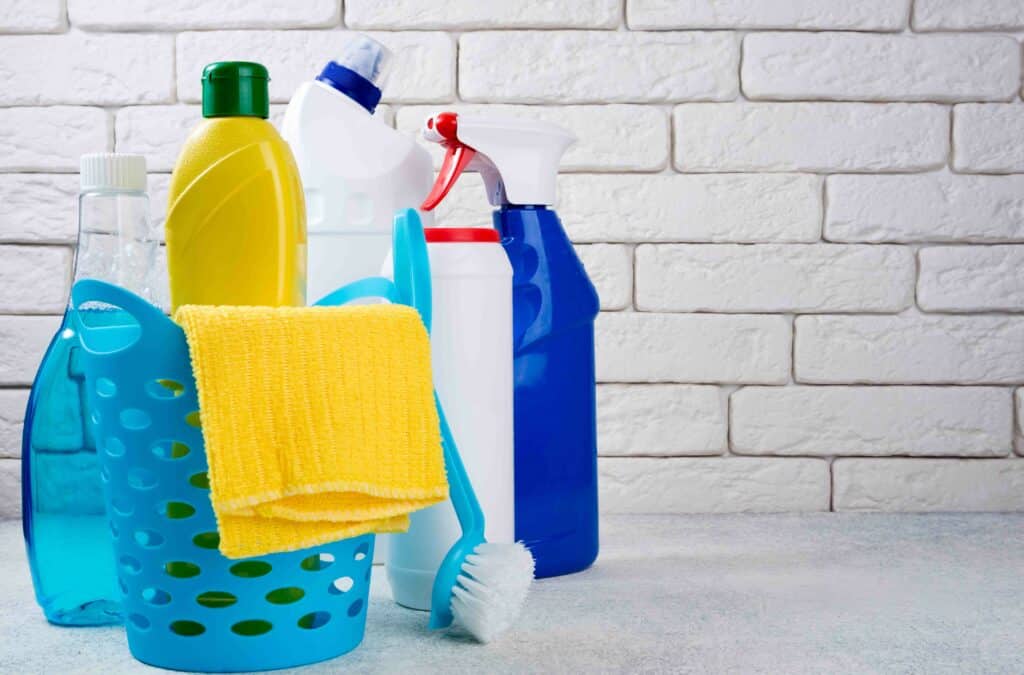
Andrew Navarro, Master Franchise Owner of Anago of Philadelphia, was featured in the Franchise Times. Andrew gets candid with Franchise Times staff writer Nicholas Upton to discuss his investment—and the resulting outcome—of his Anago Master Franchise.
Andrew’s story is part of a series in which the Franchise Times asks what makes multi-unit operators tick. Read his story below!
You were building Abercrombie and creating this young, hip brand. How did you get into a cleaning company?
I was a retail executive for 25-plus years, so my life was completely different. If you had asked me three years ago if I would be the CEO of a janitorial company, I’d say you were nuts. But I wish I did it 10 years ago.
What does the My Salon Suite side of the business look like?
We were looking at it and thought it was a no brainer. Salon suites are a large investment but we saw opportunity to get in early since we’re the first to get into Philadelphia. My wife pretty much runs the salon suites and then I run the cleaning business. She has extensive sales experience at the corporate level, so we’re doing what we’re good at.
How did your experience fit in with the janitorial business?
In the commercial cleaning business, there’s little high quality and almost no exceptional customer service. We decided if we could come in and do both, we had a high chance of being successful.
Salons and janitorial are not anywhere near the same segment. What binds them?
We really picked both of these for similar reasons. Both are recession-resistant—people always need cleaning and haircuts. You can’t buy either on Amazon. And they’re both businesses with entrepreneurial people. To start both of these, it’s about partnering with people who are entrepreneurs. And we love the opportunity to help others become entrepreneurs and business owners themselves.
A lot of master concepts say that though…
There are a lot of territory owners that I found doing some undercover work at competitors, just to see how they’d treat me if I were looking for a unit franchise. It was, ‘fog a mirror with a checkbook.’ People can look at that from a revenue standpoint and really dive in that way. But to me, it’s driving business growth, helping them grow their business.
What did that take?
When we took over, we had a lot of very disgruntled franchisees; a good number left. We had 24 when we started, then based on if you talk with them, they’d say I weeded them out. I say they weeded themselves out. We probably lost 11 in the first four months. We got 12 or so in the last two years. Those that hung on, the old owner had not been good to them. So, it took about three months to turn that around and to show that we were in it for them.
What got them to see you were in it for them?
I offered all our franchisees individual one-on-one business strategy meetings talking about how to recruit, where they want to be. I’m always very transparent and say you probably forgot more about janitorial than I will ever know. I also hired on an operations manager with 35-plus years in janitorial. My vision was to 20X this business. Within nine to 12 months, they started having the opportunity to leave their day jobs.
What have the results been?
In 2019, we won the master city of the year that ranks operators on most absolute growth. We won that by more than 50 percent. I don’t say that to brag, but it’s a commitment to what our franchise is. We took over the business at $30,000 a month, now we’re at $220,000 monthly recurring. In 2019, of our new starts, 50 percent of those accounts come from referrals. You don’t hear of that in a cleaning business.
Staff writer Nicholas Upton asks what makes multi-unit operators tick—and presents their slightly edited answers in this column in each issue. To suggest a subject, email nupton@franchisetimes.com.